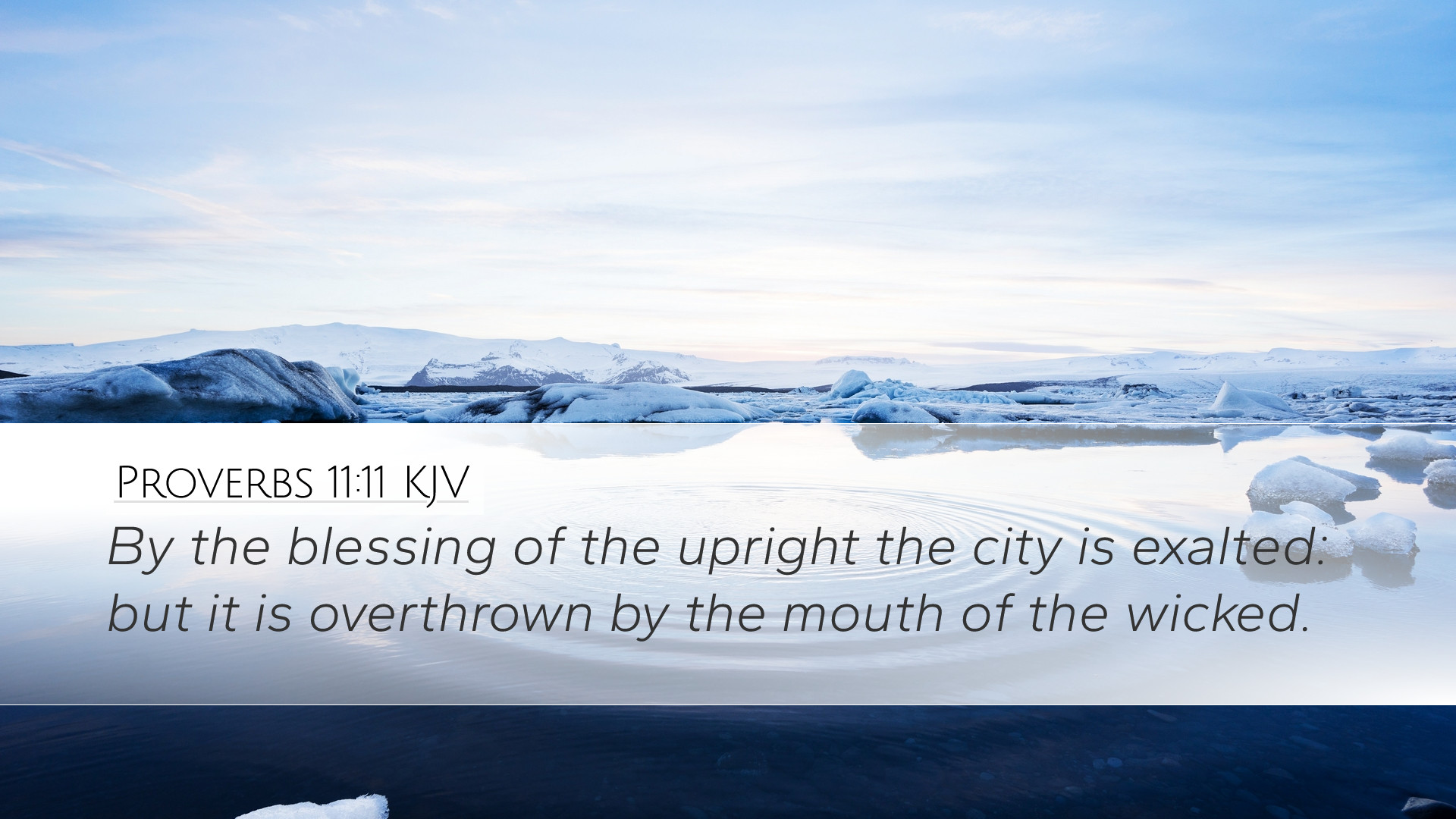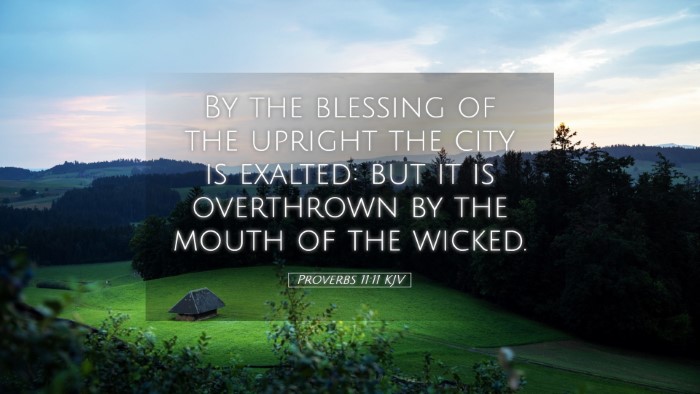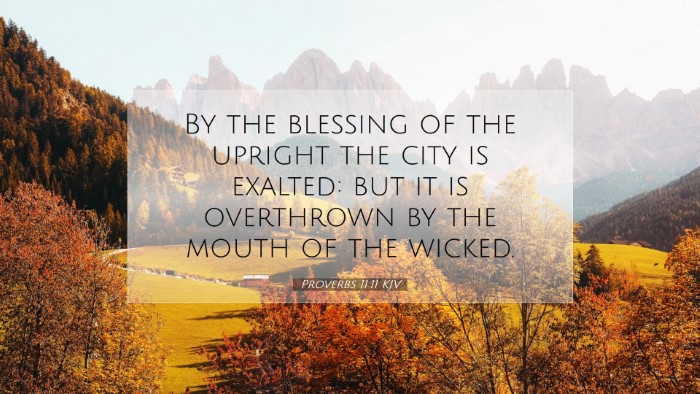Commentary on Proverbs 11:11
Verse: "By the blessing of the upright the city is exalted: but it is overthrown by the mouth of the wicked." (Proverbs 11:11)
Introduction
This verse encapsulates the profound impact of morality and righteousness on societal well-being. It stands as a testament to the power personal character has not only on individual lives but also on the broader community and even nations. The insights from various public domain commentators highlight the multi-faceted layers of meaning encapsulated in this succinct proverb.
Insights from Commentators
Matthew Henry's Commentary
Matthew Henry expounds on the significance of the "upright" and their connection to societal elevation. He notes:
- The Blessing of the Upright: Henry argues that the moral integrity of the righteous positively influences the community. Their presence brings blessings, leading to prosperity and peace. The idea here is that righteousness creates an environment conducive to growth and well-being.
- Impact of Wickedness: Contrasting this, Henry emphasizes the destructive power of wickedness. He remarks that the "mouth of the wicked" refers to those who spread malignity and strife, undermining the fabric of society. Their words and actions can lead to unrest and destruction.
Albert Barnes' Notes on the Bible
Albert Barnes provides further exposition on the dynamics between the upright and the wicked. He highlights:
- Exaltation of the City: Barnes asserts that when the righteous thrive, their virtuous behavior fosters a sense of unity and strength in the community. It suggests that their lifestyle can lead to societal norms that uplift and inspire those around them.
- Wickedness as a Corrosive Force: According to Barnes, the subtext here is a warning about the societal repercussions of immorality. The speaker implies that even the smallest negative influence can grow cancerous, affecting the city's stability and moral compass.
Adam Clarke's Commentary
Adam Clarke delves into the nuances of the terms used in this proverb. He offers the following points:
- The Role of Blessings: Clarke states that blessings can manifest not just in material wealth but in wisdom, justice, and overall societal peace. The righteous act as conduits of divine favor, reflecting God's character in their community.
- Spoken Words and their Power: Clarke makes a poignant observation about the "mouth of the wicked." He interprets this as an indication of how detrimental speech can be—lies, gossip, and slander contribute to the moral decay of society and can lead to its downfall.
- Contextual Understanding: Clarke also highlights the importance of understanding this proverb against the historical backdrop of ancient Israel, where communal identity was deeply intertwined with individual righteousness.
Theological Implications
This verse opens a discourse on the theological underpinnings of righteousness and its societal implications. The blessing that arises from the upright can be seen as a reflection of God's covenant faithfulness, wherein the behavior of His people is expected to align with His will. The stark contrast with the wicked highlights the persistent biblical theme of duality—light versus darkness, truth versus falsehood.
Practical Applications
For pastors, theologians, and students of Scripture, Proverbs 11:11 serves as a call to action:
- Promotion of Righteous Living: Emphasizing the importance of living uprightly within the church and community can inspire others to follow suit, creating a ripple effect of moral integrity.
- Vigilant Speech: As a reminder of the destructive potential of words, it encourages individuals to exercise caution in their speech and dialogue, promoting a culture of affirmation and respect.
- Community Engagement: Churches and faith groups can take active roles in their communities, embodying the values of righteousness that can help elevate societal standards.
Conclusion
Proverbs 11:11 poignantly encapsulates the significant principle that the moral disposition of individuals and communities shapes societal dynamics. Commentaries from Matthew Henry, Albert Barnes, and Adam Clarke guide readers through various dimensions of this text, inviting a deeper contemplation of the weight and blessings of righteousness.


